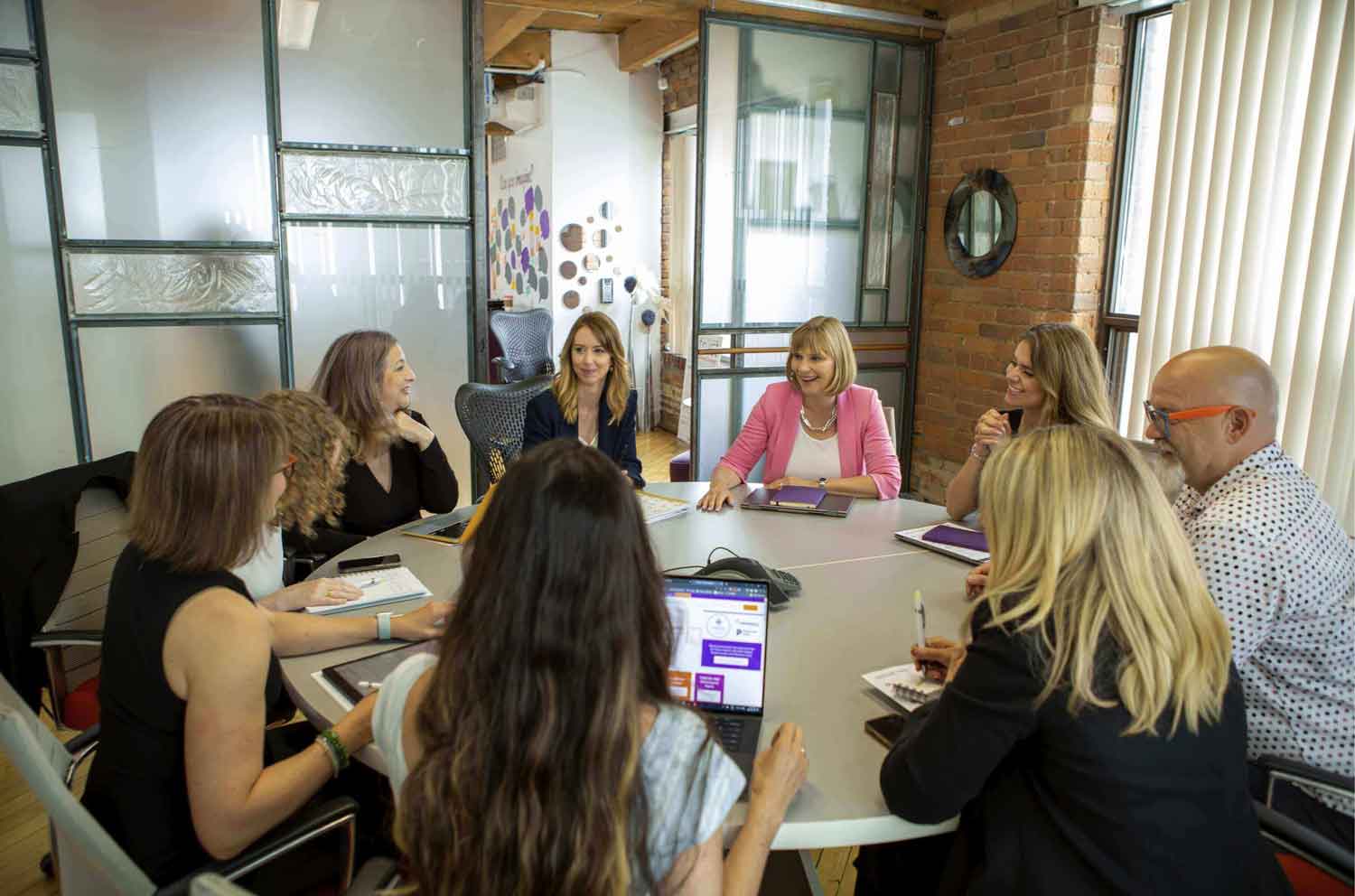See if you’re familiar with this scenario: you get tapped for a leadership development program and would head off to one or two days in a conference room where you listen to a “sage on the stage” talk about some leadership skill or behaviour. If you were lucky, breakout rooms or activities (yay for role plays) are thrown in to liven things up and make learning “interactive.”
And then what? You walk out with a few nuggets scribbled down in your binder to put into action, and then return to your chock-a-block workday, playing catch-up on all the emails you missed and project deadlines that loom ahead.
All the good intentions on changes you planned to make quickly fade as you sink back into the pace of your work.
If we really want learning to stick, it’s time to blur the lines between what is learning and what is work. It’s time to create an environment where continuous learning is part of an everyday routine.
At The Roundtable, we have an expression: if you’re not moving something off your desk when you’re in one of our sessions, we’re doing something wrong.
As humans, we are hardwired to learn. Yet, in our daily lives we are continually overwhelmed and bombarded with emails, Zoom meetings and expectations that distract us from learning and leave us firefighting. To get new leadership skills and behaviours to stick, we need leadership development programs that act more like “drip irrigation,” rather than a firehose of information. New skills and behaviours need to be practised over time in order to be learned.
Here are three ways to strengthen leadership programs:
- Go deep. Building leadership skills and knowledge is essential but helping people adjust attitudes, mindsets, beliefs, values and motivations – that’s the game changer when it comes to increasing leadership impact. Ensure programs allow leaders to dig into deeper levels of self-insight and integrate those learnings over time because that’s what will ultimately shift culture and bridge that gap between knowing what to do and actually doing it.
- Get practical. Make programs relevant to your leaders’ workday. Ensure that new skills and behaviours can be tested out back on the job. We need to remove learning from the boundaries of the classroom and place it into the flow of work that allows leaders to develop and sustain learning over time.
- Cultivate Accountability. It is a business imperative that HR shifts from being the “keeper” of professional development to being a strategic amplifier of learning. Here’s a radical idea: Put the onus of learning into the hands of your leaders. How? By developing peer learning groups. Methods like group coaching enable leaders to stop learning in isolation and start learning collectively, while holding themselves and each other accountable.
We Can Help
If you are looking for leadership programming that fits into the flow of work, let’s connect. We help leaders, teams and organizations drive Exceptional Leadership, Exceptional Performance and Exceptional Culture through cultivating systems of accountability, alignment and adaptability. Our goal is simple: we want to help our clients unleash collective impact that lasts.
If you’re curious about how The Roundtable can help your organization develop an environment where leaders can support each other through coaching and mentoring, let’s start a conversation.




